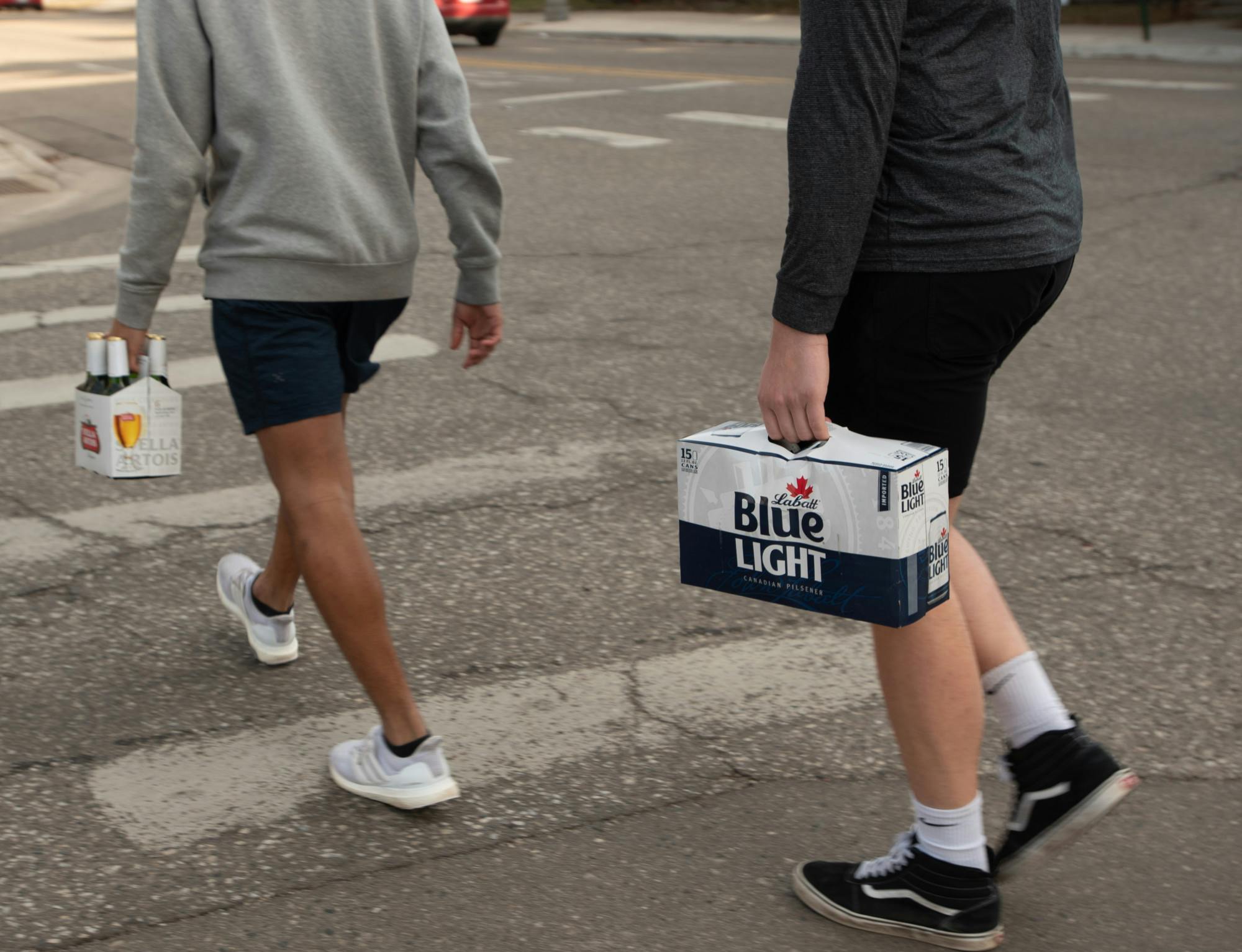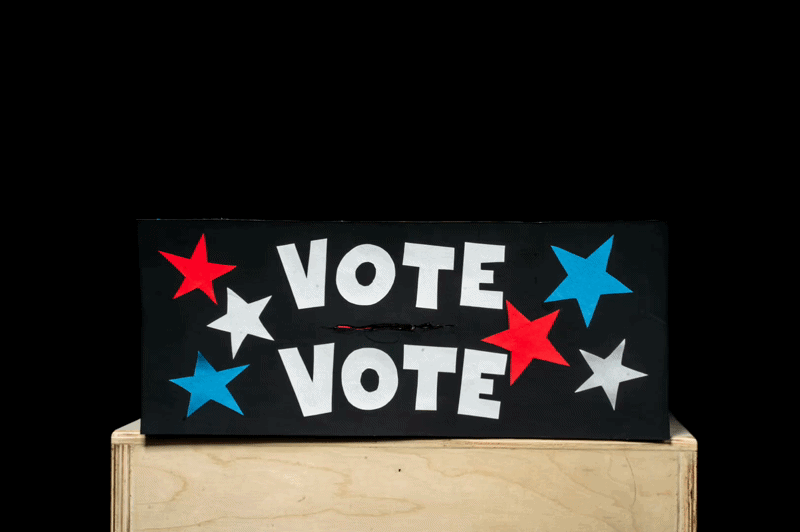In a college town like East Lansing — lined with bars and next to a campus that sees an influx of visitors on game days — sipping an open beer could have different consequences or none at all depending on who or where you are.
When it comes to who you are, it is a nationwide law that persons under the age of 21 cannot consume or purchase alcohol, potentially resulting in a Minor in Possession (MIP) charge. When it comes to where you are, MSU and East Lansing have different ordinances dictating where and when you can be out-and-about with an open alcohol container.
MIPs
MIPs involve an underage person being in possession of an open-alcohol container, trying to purchase alcohol, or having a blood alcohol content of 0.02 or more.
East Lansing Police Department Lieutenant Travis Bove said the punishment for an MIP is based on an individual's number of offenses.
The City of East Lansing's website says a first MIP offense will usually be written as a civil infraction, not a criminal offense, and is punishable by a fine and court costs.
If a second or third offense occurs, there is potential to be charged with a misdemeanor, which could lead you to have a suspended license for a set amount of time. Second offenses also often come with possible probation and/or referrals to substance abuse treatment or community service.
From Jan. 1 up until Oct. 11, East Lansing had a total of 66 MIP offenses, 86 open-alcohol violations and 39 cases of false identification.
Bove said the false identification numbers aren't only for cases in which false identification was used to purchase alcohol, as they can also apply to people falsely identifying themselves during traffic stops.
MIP arrests this semester have been slim, with six in East Lansing from Aug. 26 to Oct. 21.
Disorderly conduct, which often ties in with alcohol-related offenses, is more common, with 32 cases in East Lansing in the same time frame. Bove said disorderly conduct can be anything from disorderly fighting to providing false identification to a police officer.
East Lansing’s MIP ordinance states that any person suspected of being in possession of alcohol while under the age of 21 is required to show proof of age and may be asked to take a breath alcohol test. The disorderly conduct ordinance prohibits public intoxication and any behavior directly endangering the safety of another person or property.
Open alcohol rules
East Lansing’s open-alcohol ordinances prohibit the possession of alcoholic beverages in either an open container or a container with a broken seal in any public place that isn’t a licensed liquor establishment. So, if you plan on finishing your drink on your walk home from a party or the bar, think again.
Bove said that in East Lansing, MIP offenders often get caught initially for breaking the open-alcohol ordinance, which draws attention from officers.
"You're walking down the street with open alcohol, you are violating the law for open alcohol and then also potentially being, if you're under the age of 21, a minor in possession of alcohol," Bove said. "It is the discretion of the officer who has contact with that. They can issue a citation for open alcohol, they can issue a citation for MIP, or they can (do) both."
Liquor law violations are more common during the times of year that see an influx of people in the city, such as the beginning and end of the school year when it's warm or on game days, Bove said.
"We will staff at a heavier rate, just to provide safety," he said. "That's not solely because of any singular event. It's just there's more people; we have to have more staffing to provide resources and have the ability to help people when they call."
MSU’s rules
MSU’s alcohol ordinances are similar, but there are exceptions to the open container rule for specific events, such as on home football game days.
Support student media!
Please consider donating to The State News and help fund the future of journalism.
"Our alcohol rules are particular just to any special events that have been approved by the university," said Nadia Vizueta, the MSU Department of Police and Public Safety communications manager. "So, for example, the more common ones would be like a football game, but those are limited to very specific days that the university allows."
So, if you are carrying an open container on game day, make sure you stay within the bounds of campus. That's defined as "bounded by Grand River Avenue, Hagadorn Road, Mount Hope Road, Harrison Road, and Michigan Avenue." Once you cross over the line into East Lansing, then you are in violation of the city's ordinances.
The MSU ordinance also states that no alcohol is to be sold or distributed on campus except at the stadium or for an event in which it was pre-approved by the board.
Those who violate these ordinances could face a variety of punitive measures: disciplinary probation, required attendance at educational programs, referral for assessment and treatment, relocation to a new living environment and suspension from MSU for repeated violations, according to MSU’s 2024 Annual Security and Fire Safety Report.
Vizueta said MIP cases aren't as common on campus, but when they do occur, they often involve minors with open containers or that are above the legal blood-alcohol concentration.
Medical amnesty and other resources
When it comes to alcohol-related crimes, Bove said it is also important to recognize the presence of medical amnesty, which is applicable at MSU and in East Lansing.
Medical amnesty is an exemption from discipline for violations of drug or alcohol-related policies for people seeking immediate medical attention for themselves or on behalf of someone else.
"While there is a portion of our job that is enforcement, our main goal is to make sure people are safe," Bove said. "We want people to know that if someone is intoxicated and needs help and is under 21 years of age, medical amnesty covers that."
MSU also offers the Alcohol and Other Drugs program, commonly referred to as the AOD program, which is a resource for students suffering from alcohol or drug abuse where they can attend events to learn about recovery.
In an email to The State News, AOD coordinator Hailey Green said the program offers educational programs designed for students who have received a sanction through MSU's Dean of Students Office after being charged with a minor in possession. Those programs offer space for students to reflect on their attitudes and behaviors regarding alcohol in a supportive, non-judgmental environment.
She said they also offer the option to receive anonymous assessment tools that can be used to assess a person's alcohol or drug use to help identify potential risks associated with substance use.
Other resources for students suffering from alcohol abuse include MSU Counseling and Psychiatric Services and MSU’s Collegiate Recovery Community.
Discussion
Share and discuss “MSU and East Lansing liquor laws, explained” on social media.







